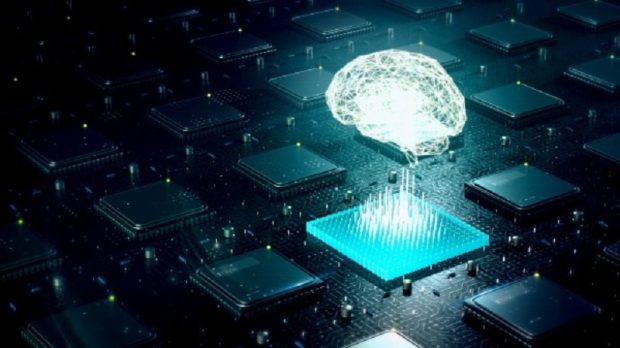
AI won’t gain human-like cognition, unless connected to real world through robots: Study
PTI, Jun 12, 2023, 6:34 PM IST

Representative Image (Source: Shutterstock)
Artificial intelligence (AI) systems are unlikely to gain human-like cognition, unless they are connected to the real world through robots and designed using principles from evolution, a study has found.
Cognition is the mental process of acquiring knowledge and understanding through thought, experience, and senses.
The research, published in the journal Science Robotics, found that AI systems will not resemble real brain processing no matter how large their neural networks or the datasets used to train them might become, if they remain disembodied.
Researchers from the University of Sheffield in the UK noted that current AI systems, such as ChatGPT, use large neural networks to solve difficult problems, such as generating intelligible written text.
These networks teach AI to process data in a way that is inspired by the human brain and also learn from their mistakes in order to improve and become more accurate. Although these models have similarities to the human brain, the researchers said there are also important differences, which are preventing them from gaining biological-like intelligence.
Firstly, they said, real brains are embodied in a physical system — the human body — that directly senses and acts in the world.
Being embodied makes brain processes meaningful in a way that is not possible for disembodied AIs, which can learn to recognise and generate complex patterns in data but lack a direct connection to the physical world, the researchers said.
Therefore such AIs have no understanding or awareness of the world around them, they said.
Secondly, human brains are made up of multiple subsystems, which are organised in a specific configuration – known as architecture – that is similar in all vertebrate animals from fish to humans, but not in AI.
The study suggests that biological intelligence – like in the human brain – has developed because of this specific architecture and how it has used its connections to the real world to overcome challenges, learn and improve throughout evolution.
This interaction between evolution and development is rarely factored into the design of AI, according to the researchers.
”ChatGPT, and other large neural network models, are exciting developments in AI which show that really hard challenges like learning the structure of human language can be solved,” said Professor Tony Prescott, Professor at the University of Sheffield. ”However, these types of AI systems are unlikely to advance to the point where they can fully think like a human brain if they continue to be designed using the same methods,” Prescott said.
“It is much more likely that AI systems will develop human-like cognition if they are built with architectures that learn and improve in similar ways to how the human brain does, using its connections to the real world,” he added.
Udayavani is now on Telegram. Click here to join our channel and stay updated with the latest news.
Top News

Related Articles More

Snatcher lands in police net in Delhi, AI tech helps reveal identity

AI Meets Health: The Rise of Smart Fitness Solutions

Power Up by Powering Down: 10 Energy-Saving Tips for Every Home

Multi-lingual AI chatbot to assist visitors during Maha Kumbh Mela 2025

ISRO carries out ‘well deck’ recovery trial of Gaganyaan
MUST WATCH
Latest Additions

Bhadravathi: Seven injured in boiler explosion at rice mill

Strict provisions of law for women’s welfare; marriage not commercial venture: SC

Allegation of abuse against K’taka Minister Laxmi: BJP leader C T Ravi booked, taken into custody

Gadag: 2-yo girl dies after being run over by water tanker

Mangaluru Traffic Advisory: Netravathi Bridge repair work to affect vehicle movement
Thanks for visiting Udayavani
You seem to have an Ad Blocker on.
To continue reading, please turn it off or whitelist Udayavani.


















